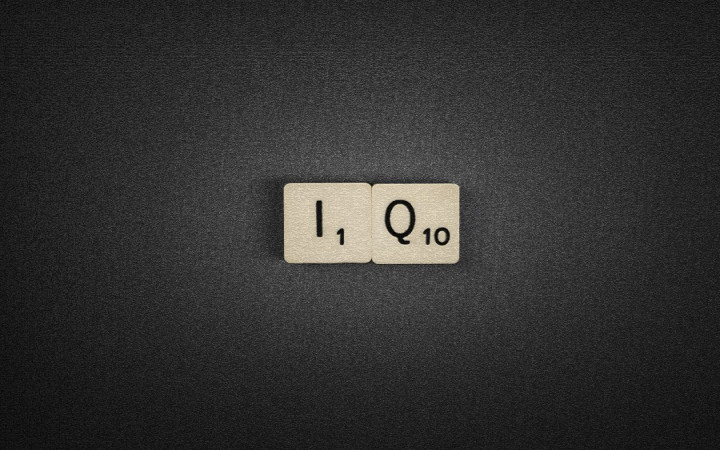Are you a smart cookie? If you answered "yes" to that question, how do you know? Do you get good grades? Maybe you've achieved a top score on a standardized test you took at school. If either of those is the case, then you might rightfully claim that you're smart. After all, that's what grades and tests are supposed to measure, right?
Of course, your school grades and standardized test scores aren't the only indicators of intelligence. Not everyone performs well in a typical school setting. Not everyone does their best under the pressure of a standardized test. There are plenty of smart people who don't necessarily get top grades or test scores for a variety of reasons.
So, if you don't rely on grades or test scores, how might you determine how intelligent you are? One tried and true method that's been in use for over a century is the IQ test.
The IQ test got its start in the early 20th century when French psychologist Alfred Binet was asked by the French government to develop a means to identify students who would need extra help in school. With help from Theodore Simon, Binet developed the first intelligence test, known as the Binet-Simon Scale.
Binet and Simon developed questions that focused on things not taught in school, including memory, attention, and problem-solving skills. Early test results led Binet to develop the concept of mental age, which was a measure of intelligence based on the average performance of students of a certain age.
When the test was brought to the United States, Stanford University psychologist Lewis Terman used American students to adapt the test for use in the U.S. The new test, called the Stanford-Binet Intelligence Scale, soon became the standard intelligence test in the U.S.
On the Stanford-Binet test, an individual's score was represented by a single number, called the intelligence quotient or IQ. The IQ was calculated by dividing the individual's mental age (determined by performance on the test) by his or her chronological age and multiplying by 100.
Today, the most commonly-used IQ test is the Wechsler Adult Intelligence Scale. The Wechsler and other IQ tests are similar in that they tend to consist of questions that some might call brainteasers. Almost-playful questions ask individuals to do a variety of seemingly-unrelated tasks, from putting abstract shapes together and translating codes to sorting numbers or letters and recognizing patterns.
After taking an IQ test, you might question whether these tests have any relevance. Scientific studies have repeatedly shown, however, that these tests are quite good predictors of general intelligence and the ability to solve a variety of abstract problems, regardless of subject matter.
Today's IQ tests use a standardized scale with a median score of 100. A score in the range of 90-110 indicated average intelligence. Scoring above 130 signals exceptional intelligence, while a score below 70 might indicate some mental impairment or delay.
Recent studies have shown that children who score higher on IQ tests will also fare better when it comes to other typical measures of success in life, such as academic achievement, economic success, and even better health. Do they succeed because they're more intelligent? Not necessarily!
Other studies have shown that IQ test scores can also be explained, in part, by how motivated children are to do well on the test. Researchers believe that very motivation might also serve to increase success later in life.





